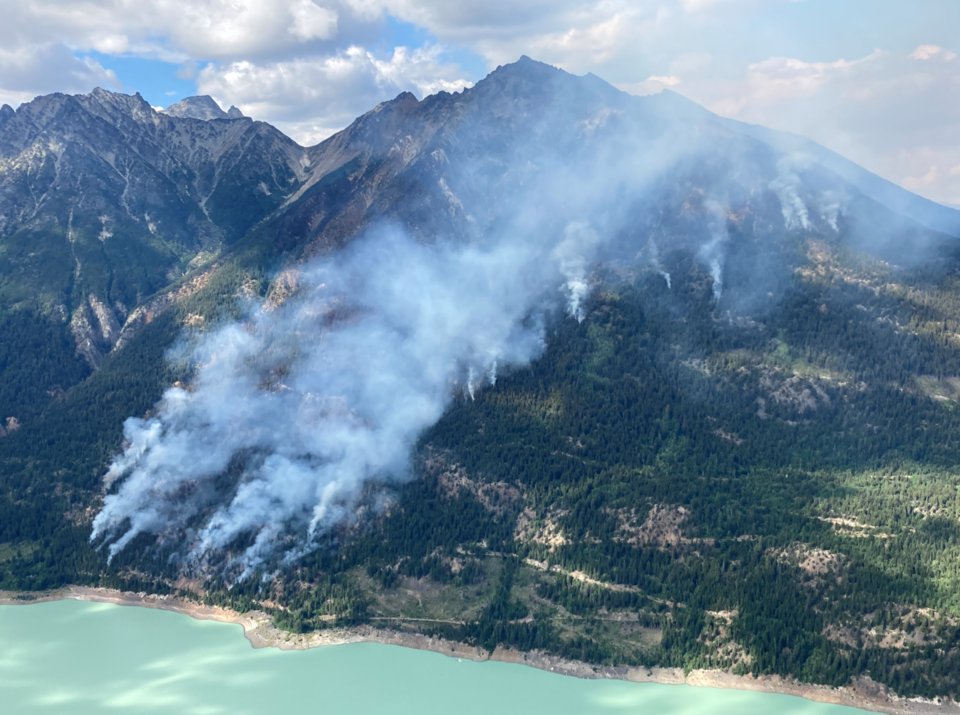In 2023, a wildfire ripped through the Downton Lake area of the Upper Bridge River Valley (BRV), destroying more than 40 homes, threatening some 270 properties and consuming an area of about 9,600 hectares before being put out.
Now, a partnership between the Squamish-Lillooet Regional District (SLRD), Cariboo Carbon Solutions (CCS) and Tree Canada is looking to plant 80,000 seedlings on private lands in Electoral Area A in 2026 at no cost to participating landowners.
The SLRD has asked interested residents to sign up by June 30 to give organizers time to develop site-specific planting plans. As of May 26, 40 landowners had already signed up.
The SLRD calls the reforestation plan “a major step forward in recovery and climate resiliency in the Upper BRV,” supporting “ecological restoration on fire-affected private properties.”
“The 2023 wildfires left a lasting impact on the Gun Lake area, and recovery has been a shared community effort,” said SLRD board chair Jen Ford in a release. “This tree replanting project is a powerful example of what we can achieve through collaboration across local government, industry partners, residents, non-profits and the Province.”
The replanting initiative is part of a broader recovery effort led by the Land-Based Recovery Table, which ensures local representation as ecological restoration in the BRV moves forward. The group includes community leaders, Indigenous partners, the SLRD, provincial ministries, industry partners like CCS and local organizations including the Gun Lake Ratepayers Association.
“Thanks to Tree Canada’s National Greening Program, we’re able to work with landowners and create customized plans that strive to support long-term forest health,” said MacKendrick Hallworth, project manager at Cariboo Carbon Solutions, in a release.
“This initiative is about more than trees—it's about helping people recover and re-imagine what’s next for their land,” he added.
The seedlings, currently being cultivated at Arbutus Grove Nursery, are a mix of Douglas fir, lodgepole pine, ponderosa pine, hybrid spruce and western larch. Trembling aspen seeds are also being collected this spring to plant alongside the conifers. These seedlings are genetically suited to the local climate and will therefore not require watering, according to an information sheet from CCS.
“The community response has been heartening, as we know the replanting of trees is vitally important in the recovery and long-term resilience of regions impacted by fire,” said Colin Little, Tree Canada's national greening program manager. “At Tree Canada, our mission is to inspire, educate and enable Canadians to plant and nurture trees in order to improve lives and address climate change. We’re committed to helping communities across Canada recover from wildfires and restore their natural landscapes.”
Eligible properties should have at least one hectare of plantable area, but exceptions can be made for smaller properties near other eligible sites.
Residents interested in the program can apply by sending a completed CCS Private Landowner Intake Form to [email protected].



